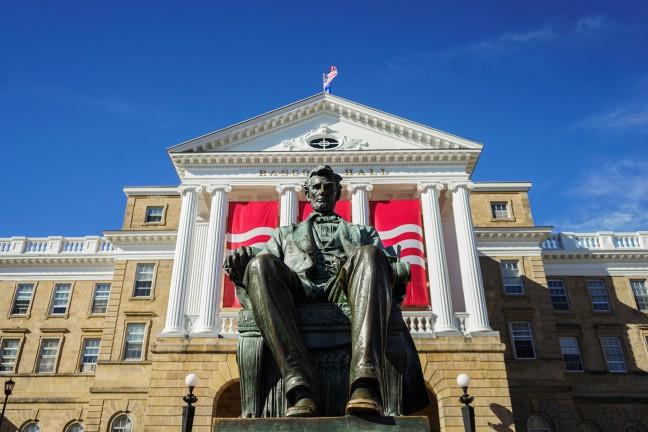On Friday, the University of Wisconsin System became an institution more tolerant of hate than those who stand against it.
In a nearly unanimous vote, the UW Board of Regents voted to approve a policy allowing schools to suspend and ultimately expel students who disrupt others’ “freedom of expression” on multiple occasions.
What the regents fail ― or refuse ― to understand is that while the policy’s ostensible purpose is to protect free speech, in practice it only serves to further racist ideologies at the expense of students’ right to assemble.
The policy, which mirrors the language of a GOP-backed bill in the Wisconsin Legislature, came to fruition as universities across the country, particularly the University of California – Berkeley, have become a hotbed for protests over campus events featuring ultra-conservative figures such as Ann Coulter and Milo Yiannopoulos. The issue became relevant at UW in November 2016, when a group of protesters demonstrated at a Young Americans for Freedom event featuring former Breitbart editor Ben Shapiro.
It may come as no surprise, then, that the regents — 16 of whom were appointed by Republican Gov. Scott Walker — are sympathetic to the conservative cause.
According to the South Poverty Law Center, “college campuses are clearly on the frontline of the alt-right’s battle against multiculturalism.” The SPLC defines the “alt-right” as “a form of white nationalism composed of far-right ideologies expressing a belief that ‘white identity’ is under attack.”
“Despite the new name,” the SPLC writes, “the alt-right is rooted in the familiar fascism and white supremacy that existed before World War II.”
The key to healthy debate, which the Regents claim they are striving to promote, is that both sides have something worth saying, a point worth arguing. I attended UW to participate in a discussion of diverse views and perspectives, not to listen to Nazi-esque bigots spew their outdated hatred, which has little foundation in public debate.
Moreover, even if the protesters weren’t, in some cases quite literally, shouting down modern Nazism, it is their right to peacefully protest as much as, if not more so, than it is a presenter’s right to speak. A democracy guarantees the right to speak, it does not guarantee the right to a complicit audience.
Maybe disrupting something is rude; maybe the people who attended Shapiro’s event were upset they couldn’t hear him advocate for the plight of the white man, but that’s irrelevant so long as the protest does not turn physically violent. If you truly want to engage with these vile ideas, find a private area and knock yourself out, but don’t expect the public to remain silent as oppressive ideas are trumpeted in public.
The protesters’ rights to assemble and peacefully protest are more protected than the audience’s general annoyance. Or at least they were, before the UW administration decided students’ First Amendment rights came with a hefty asterisk.
Madeline Sweitzer (sweitzermadeline@gmail.com) is a recent University of Wisconsin graduate with a degree in political science, history and journalism.


